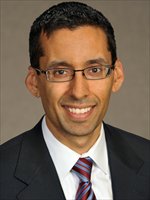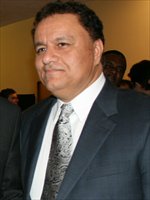Iran negotiations: debate or delaying tactic?


Editor's Note:
Negotiations between Iran and the P5+1 Group, consisting of the US, the UK, France, Russia, China and Germany, will be held today. The negotiations have been going on for almost a decade, with long interruptions. Why are the negotiations restarting at this time? Will they help ease tensions? Global Times (GT) reporter Yu Jincui interviewed Kaveh Afrasiabi (Afrasiabi), former political science professor at Tehran University and an advisor to Iran's nuclear negotiation team during 2004-05, and Michael Singh (Singh), managing director of the Washington Institute for Near East Policy, on these issues.
GT: Why have the negotiations resumed at this time?
Singh: Since the last talks between Iran and the P5+1 in January 2011, the level of international pressure on Iran has increased substantially. The US and EU are now applying sanctions to Iran's central bank, which has significantly constrained Iran's ability to sell its oil on world markets, as well as to conduct non-oil trade. In addition, Israel has warned that it may carry out a military strike on Iran in the near future.
These pressures have likely made the Iranians more receptive to at least holding talks about their nuclear activities, though this does not necessarily imply that Iran will be ready to change course or even have a serious conversation.
Afrasiabi: This is a complex and multifaceted issue that does not lend itself to speedy resolution. Complicating factors include the Western obsession with coercive tactics bypassing meaningful diplomacy, distraction with other issues, and of course disagreements on the right timing and focus of the talks.
GT: The Obama administration will reportedly go into negotiations with Tehran demanding a set of preconditions. Among them is that Iran halts production of uranium enriched to 20 percent and calls for Tehran to immediately dismantle the underground enrichment facility at Fordo. How to interpret the US demands?
Afrasiabi: I think it is possible to interpret the US demands in two ways, both as a sign of pre-talk maneuver to set the agenda as well as a bifurcated approach that simultaneously shrinks from the previous demand for full suspension of all enrichment activities while focusing on one particular location like Fordo, and the 20 percent enrichment.
The problem is the absence of an overarching principle or guideline that would frame such demands, and the US should concentrate on devising a workable negotiation cognitive map instead of being location-specific.
Having said that, the 20 percent enrichment provides a zone of discussion that can yield productive results if not pegged to the previous maximalist demands of zero enrichment.
Singh: These demands fall well short of the demands of the UN Security Council. Resolution 1929 and preceding resolutions insist that Iran suspend all enrichment and reprocessing activities, as well as other sensitive nuclear work, and submit to comprehensive IAEA inspections. The reported US proposal which only requires Iran to suspend its higher-level enrichment and dismantle the Fordo facility would therefore represent a significant compromise, one that in my opinion is ill-advised for the P5+1 to make.
The real question is whether Iran wants to make any true strategic shift in its approach to the nuclear issue as a result of international pressure, or whether it simply sees the talks as a delaying tactic.
GT: Iran appeared to hold firm in response to the US demands. How will this influence the negotiations?
Singh: In fact it appears that Iran has been sending mixed signals, with some Iranian officials suggesting a readiness to compromise and others rejecting the reported P5+1 demands.
But even if some sorts of interim agreement were reached, it will take time to determine whether Iran is truly committed to it, as Iran has a history of reneging on deals once they are made.
Afrasiabi: The biggest obstacle is the fear of Iran that has led to an unnecessary crisis. In fact, the IAEA and Iran are making steady progress to remove the existing "ambiguities" and the coming talk has the potential to setback that progress, so the "5 + 1" nations would be wise to frame their demands in close proximity to Iran-IAEA cooperation agreement.
GT: What are your expectations for the new round of negotiations? Is it possible to make some breakthrough?
Afrasiabi: I have moderate to low expectations and think that both sides should avoid high expectations and utilize this opportunity to narrow their differences and select specific areas that lend themselves to incremental progress or breakthroughs. Unfortunately, the US and its allies are displaying unusual impatience with their veiled threats of "closing the window of diplomacy" that are counter-productive and can backfire.
Singh: Progress will be possible if Iran understands that it is in Iran's own interest to change course, end its nuclear defiance, and work in earnest to fulfill its international obligations with respect to its nuclear program.
The recent attitude of Tehran does not inspire confidence that it has yet reached this understanding.
Afrasiabi: This makes absolutely no sense whatsoever, reflecting a defunct superpower bullying that can only have the opposite effect of hardening Iran's stance.
In conclusion, Russia and China should exert independent influence and stop the US, France, the UK, and the axis of coercion, from dictating the flow and dynamism of the coming talk.
Singh: I believe that both the Israeli and US threat to use military force to stop Iran's nuclear program are credible and should be taken seriously.
Neither the US or Israel desires conflict with Iran, but such a conflict would be preferable to allowing Iran to develop nuclear weapons, which would hold the possibility of destabilizing the Gulf and the wider Middle East for years to come. One can only hope that Iran will take these warnings seriously and, in the interest of the Iranian people, will choose international cooperation over conflict.
Time may not be right for talks
Despite the forthcoming negotiations, it is unclear whether Iran is ready for a serious talk yet.
The talks are restarting because the Iranian regime is feeling the pinch of international sanctions. The exchange rate has dropped by about half and unemployment is high. The impending loss of significant oil revenues from the embargo of Iranian oil exports by the EU and other countries means that this situation will only worsen in the months ahead.
US Secretary of State Hillary Clinton has called on Iran to build trust by ending the enrichment of uranium to 20 percent, shipping the highly enriched uranium out of the country, and permitting IAEA inspections and verifications.
If Iran has only peaceful goals in mind, then it should have no problem with confidence-building measures to meet these concerns.
It is premature to judge the attitude on either side until actual positions are known; after all the purpose of negotiations is to negotiate. At this point, it is clear the ball is in Iran's court to demonstrate the peaceful purposes of its nuclear program. A breakthrough from the forthcoming meeting is possible but unlikely. Almost certainly a breakthrough will take time.
Thus, indicators to look for from the meeting are three: the setting of a date for subsequent negotiations in the near term, whether there are bilateral discussions between the US and Iran, and any hints or preliminary announcement of possible confidence building measures.
The article was compiled by Global Times reporter Yu Jincui based on an interview with Allen Keiswetter, a scholar at the Middle East Institute, a non-partisan think tank based in the US. yujincui@globaltimes.com.cn